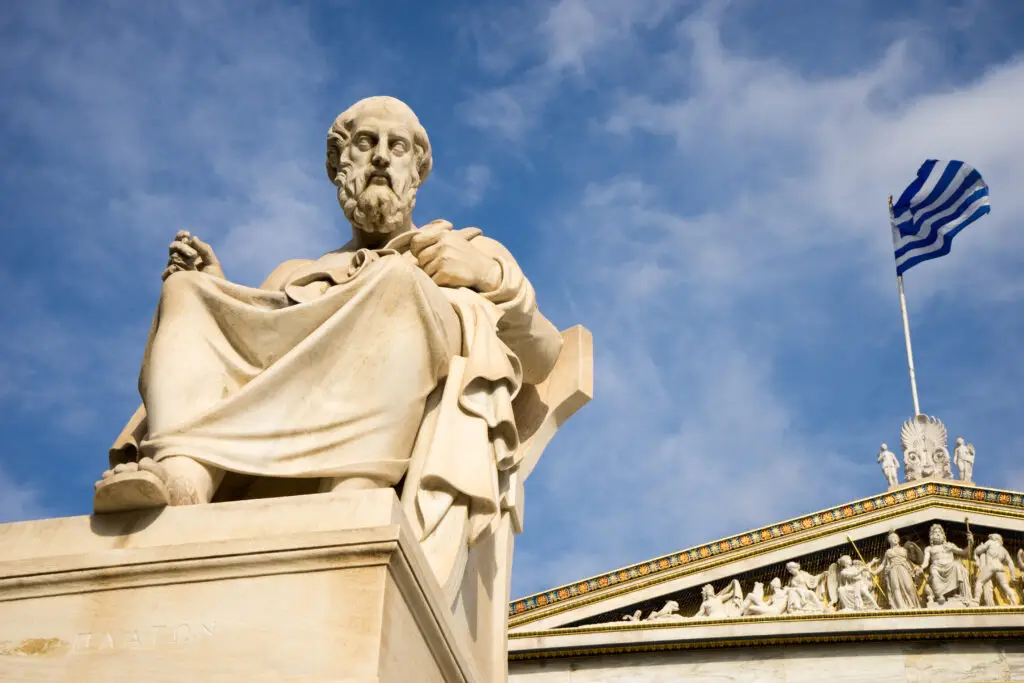Imagine sipping wine on a balmy afternoon in Athens, 2,500 years ago, engaging in spirited discussions about the nature of knowledge, ethics, and the universe. The cradle of Western civilisation, ancient Greece, was home to some of the world’s foremost thinkers whose contributions to learning and development still resonate with us today.
Socrates: The Art of Questioning
Often hailed as the father of Western philosophy, Socrates believed in the power of questioning as a means to stimulate critical thinking. He felt that true wisdom lay in acknowledging one’s own ignorance. The Socratic method, which involves asking and answering questions to stimulate critical thinking and illuminate ideas, is widely used in teaching today. Thanks to Socrates, we learned that asking the right questions is often as important as finding answers.
Plato: The Realm of Ideas
Plato, Socrates’ most famous student, introduced the concept of an ideal world. He believed that every tangible thing in our world is a mere reflection of a perfect version in a realm of ideas. Through his Academy, Plato emphasised the value of education and believed in nurturing the soul with moral virtues. His philosophies underpin much of Western thought, and his views on education continue to influence modern pedagogical practices.
Aristotle: The Birth of Empiricism
Where Plato dreamed, Aristotle observed. A student of Plato’s Academy, Aristotle believed knowledge comes primarily from experience. He emphasized the importance of observing the natural world and making deductions. He covered a broad range of subjects from biology to ethics, politics to poetry. Aristotle’s methods of investigation laid the groundwork for the scientific method and empirical research.
Epicurus: The Pursuit of Happiness
In the hustle and bustle of life, Epicurus teaches us about the simple pleasures. He believed that the ultimate goal of human life was to attain happiness and tranquillity through simple living, friendship, and the pursuit of knowledge. His teachings remind us that learning isn’t just about intellectual pursuits but also about understanding oneself and finding contentment.
Pythagoras: Beyond Philosophy to Mathematics
The Pythagorean theorem? Yes, that’s him! Pythagoras was not only a philosopher but also a mathematician. He blended spirituality with mathematics and believed that numbers had a fundamental role in understanding the universe. This intrinsic relationship between philosophy and mathematics illustrates that learning can be both abstract and concrete, theoretical and practical.
The ancient Greek philosophers weren’t just armchair thinkers. They deeply influenced the way we approach learning, the methods we employ, and the value we place on knowledge. Their rich legacy serves as a testament to the timeless nature of wisdom and the perennial human quest for understanding. So, the next time you ask a probing question or marvel at the elegance of a mathematical solution, take a moment to tip your hat to those thinkers in ancient Athens.




